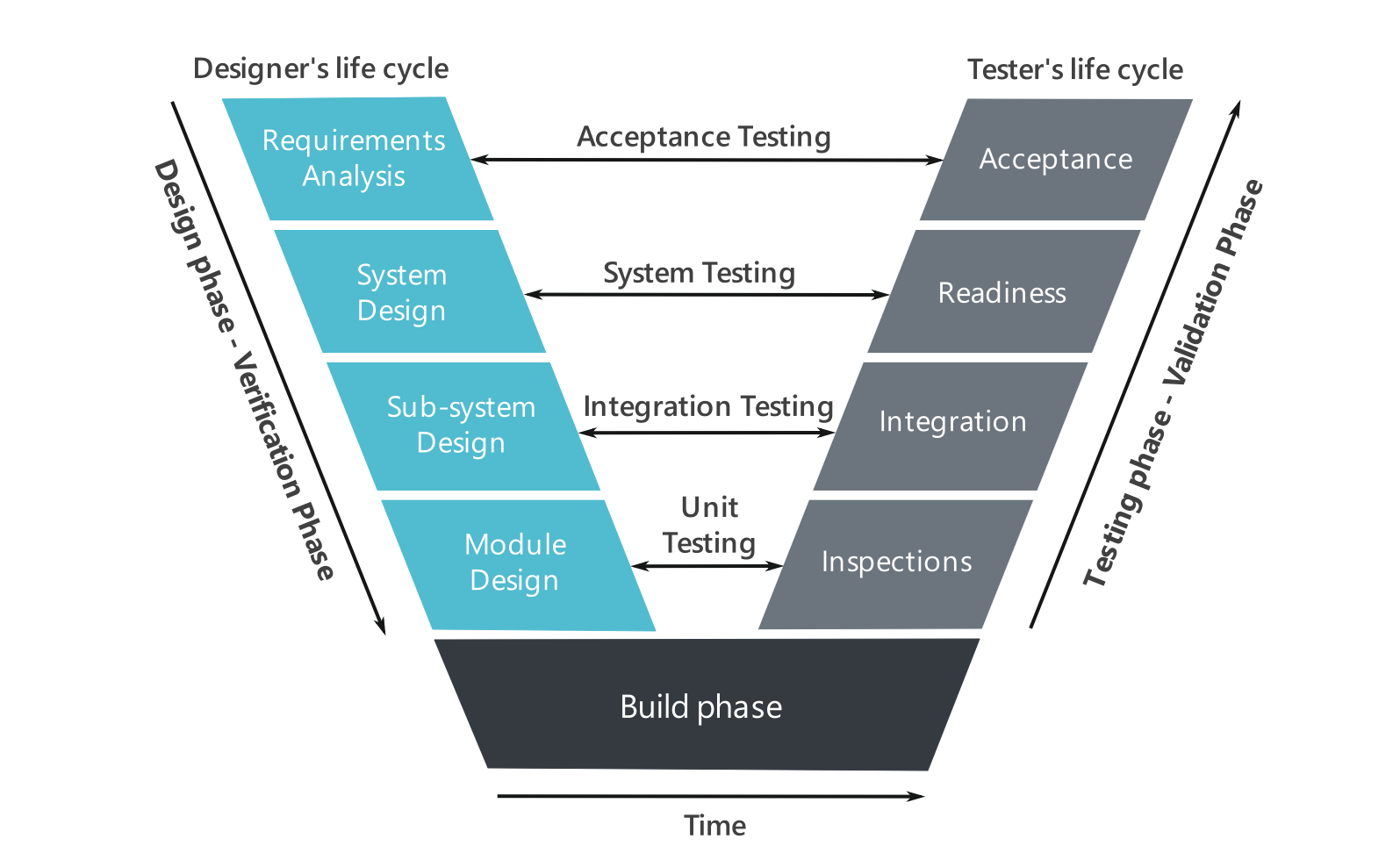The automobile industry, in its constant pursuit of innovation, has tapped into the wealth of knowledge and practical applications presented by system engineering. This multidisciplinary stream rigorously focuses on how to design and manage intricate systems over their life cycles. Understanding the inherent function of system engineering as the linchpin of robust automotive design is the purpose of this blog post.
Table of Contents
- What is System Engineering?
- Why is System Engineering Essential?
- The Role of System Engineering in the Automotive Industry
- The Evolution of System Engineering in Automotive
- Tools Used in the Automotive Industry
- Key Components of Automotive System Engineering
- The Impact of System Engineering on the Automotive Industry
- Conclusion
What is System Engineering?
System engineering, quite simply, is the scaffolding pillar that holds technology-intensive projects together. It applies a systematic approach to decipher the needs of customers and users, translating those requirements into a holistic design and operational solution. It encompasses a broad spectrum that includes aspects such as system architecture, integration, modelling, decision analysis, and more. Primarily, it is about understanding complex systems, creating and managing requirements, and proving that a system meets these requirements.
Why is System Engineering Essential?
The significance of system engineering can’t be overstated — particularly in a field as rapidly evolving as the automotive industry. With the advent of ground-breaking technologies like autonomous vehicles, Artificial Intelligence (AI), Internet of Things (IoT), and electric mobility, the automotive sector is no longer just about horsepower and design. Vehicles today are integrated tech platforms where both hard and software systems need to work in unison. This compels the urgent need for qualified professionals adept in advanced system engineering methods to manage this complexity.
The Role of System Engineering in the Automotive Industry
Integration is at the heart of any vehicular design — integrating different systems, hardware components, and software units to function in a harmony that assures safety, environmental sustainability, efficiency, and streamlined user experience. Complex systems like anti-lock braking systems, electronic stability control, collision avoidance systems, and advanced driver-assistance systems all take advantage of systems engineering principles to offer a safe and seamless driving experience.
The automotive industry’s transition into incorporating complex system design calls for not just expert engineers but astute system engineers that manoeuvre these multi-faceted frameworks seamlessly. Besides, with the automotive landscape progressively leaning towards sustainability, system engineers have a critical role in devising creative strategies to reduce environmental impact. This invariably throws open doors of immense potential for exciting career opportunities within the automotive system engineering sphere.
The Evolution of System Engineering in Automotive
System engineering, albeit a relatively modern term, has been part and parcel of automotive evolution. Its origins are traceable to the early stages of the Industrial Revolution when complex machinery designs necessitated a systems-based approach. Over time, the discipline branched out, scaling up its scope and complexity to match the technological advancements.
In the early days of automotive design, system engineering was implicit, applied intuitively by talented inventors and engineers led by trial and error. It was largely used for mechanical aspects like engine development and vehicle architecture. With automotive technology gaining grounds, its scope broadened to include electrical and electronic systems, leading to the birth of automotive system engineering as we know it today.
Today, system engineering is an inherent part of any significant automotive project, paving the way for breakthrough technologies and improvements. The onset of autonomous vehicles, hybrid and electric cars, advanced driver-assistance systems, and vehicular communication systems are all fruits of system engineering principles applied dexterously to bring innovation to the fore.
The Future Prospects
Looking ahead, the significance of system engineering in the automotive industry only seems to be on the rise. As we edge closer to the vision of fully autonomous vehicles and lean towards environmentally sustainable practices, intricacies will grow. With increasing system complexities on the horizon, expert system engineers will be key drivers in navigating this exciting terrain while maintaining industry standards, safety, and delivering a top-notch user experience.
Indeed, the seasoned skills of a system engineer are quickly becoming the backbone of the industry, fostering the emergence of smarter, safer, more efficient, and environmentally friendly vehicles. The focus on a holistic, system-based approach, solidified in proper methodologies and procedures, will ensure that system-engineering stays an integral part of the ever-evolving automotive industry.
Tools Used in the Automotive Industry
This table outlines some of the systems and MBSE software used for system engineering in the automotive industry, along with their benefits and applications.
| System/Software | Benefit | Application |
|---|---|---|
| Siemens Software & Systems Engineering | A comprehensive and integrated MBSE approach that enables automakers to manage the complexity of designing connected, autonomous, and green vehicles | Product definition, connected engineering, product validation, quality engineering, and integrated program planning |
| Simcenter Amesim | A simulation tool that helps engineers model and analyze multi-domain systems and optimize their performance | Fuel injection, braking, electrification, thermal management, and vehicle dynamics |
| Closed loop testing | A method that uses real-world product performance data to improve designs and drive innovation | Software verification and validation, system integration, and fault detection |
| Model in the loop (MIL), software in the loop (SIL), processor in the loop (PIL), hardware in the loop (HIL), component in the loop (CIL), and vehicle in the loop (VIL) | A set of simulation and testing techniques that enable engineers to evaluate different aspects of a system at different levels of abstraction | Software development, hardware design, system integration, and vehicle testing |
Key Components of Automotive System Engineering
At its core, automotive system engineering is a confluence of various disciplines and techniques working together to create state-of-the-art vehicles that meet the customers’ needs, all while adhering to safety standards and environmental regulations. Here, we delve into a few key aspects that are integral to this multidisciplinary field.
Modern-day vehicles are laden with complex electronic systems that enhance the overall driving experience. Examples include navigation systems, collision detection technology, and automatic braking systems. A system engineer in the automotive field is responsible for creating, integrating, and managing these complex networks. Besides, they ensure that these systems comply with the highest safety standards and efficiently collaborate with other vehicle systems.
A crucial component of automotive system engineering is working on engine performance. System engineers delve into developing and improving various engine components, including fuel systems, power units, and exhaust systems. They not only focus on improving fuel efficiency and power output, but also strive to reduce the environmental impact by enhancing emission control systems.
Streamlining Production Processes
Fabricating an automobile involves intricate assembly lines and production processes. Efficient handling of these procedures falls within the realm of the system engineer. They continually strive to enhance these processes, trim redundancies, and embrace innovative methods to render the entire production chain more cost-effective and time-saving.
Addressing Environmental Impact
With increasing concerns around environmental sustainability, the role of system engineers has evolved to encompass greener solutions. They are at the forefront of designing and developing eco-friendly vehicles, improving fuel efficiency, and pioneering technologies to mitigate carbon emissions. By exploring ways to incorporate renewable energy sources, they are pushing the boundaries of innovation in creating cleaner and sustainable transportation alternatives.
The Impact of System Engineering on the Automotive Industry
In the rapidly evolving automotive industry, system engineering plays a pivotal role in steering significant developments and advances. To appreciate the crucial role it plays, it is essential to discern the impact it has had on the industry. The impact manifests in various facets – from shaping vehicle performance to making strides in environmental sustainability.
Changes in Vehicle Performance
One of the most distinct impacts of system engineering is evident in the enhanced performance of modern vehicles. Contemporary vehicles offer a plethora of features designed to enrich the driving experience: superior handling, advanced safety features, better fuel efficiency, and innovative in-car technology. All these breakthroughs are achievable due to the nuanced application of system engineering principles that ensure subsystems and components interact smoothly to deliver superior performance.
Impact on Sustainability and Environmental Protection
As the global narrative shifts towards sustainability, the automotive industry is putting its best foot forward in responding to the call. System engineering plays an integral role in cultivating this eco-conscious approach, enabling the development of hybrid and electric vehicles, emission reduction technologies, and more energy-efficient systems. Through its holistic problem-solving approach, system engineering has emerged as the driving force behind significant strides in making the automotive industry more sustainable and environment-friendly.
Influence on Safety and User-Friendly Attributes
Safety and user experience in vehicles have seen a drastic transformation with the application of system engineering principles. Assisted driving features, safety systems such as Anti-lock Braking Systems (ABS) and Collision Avoidance Systems (CAS), enhanced ergonomics, and entertainment facilities are examples of user-focused end-results of system engineering. Equipped with a comprehensive understanding of the complex vehicle system, engineers have managed to elevate the safety margins and upgrade the users’ interaction with their vehicles.
Conclusion
In wrapping up, system engineering remains the cornerstone of innovation in the automotive industry. It’s the sublime interplay of various engineering disciplines under the system engineering umbrella that has transformed vehicles from mere transport devices into integrated tech platforms. From streamlining production processes, mastering electronic systems, bolstering engine performance to ensuring environmental compliance, the reach of system engineering in automotive is indisputably expansive and profoundly influential.
The future of the automotive industry undeniably lies in enhancing vehicles’ safety, performance, and sustainability aspects. Here, the role of expert system engineers is paramount. Exhibiting an exquisite blend of technical brilliance, adept problem-solving, and a knack for progressive innovation, they are the ambassadors of this evolving industry. The progressive landscape, coupled with the urge towards sustainable practices, promises a bright future for budding system engineers in the realm of automotive.
This comprehensive overview underlines the immense value and potential system engineering holds within the automotive industry and how system engineers serve as pivotal drivers behind the automobile industry’s evolution. As we tread towards a sustainable and technologically advanced future, the call for expert system engineers only amplifies. If you are an aspiring engineer with a penchant for complex systems and a desire to shape the future of transportation, automotive system engineering could well be your calling.







